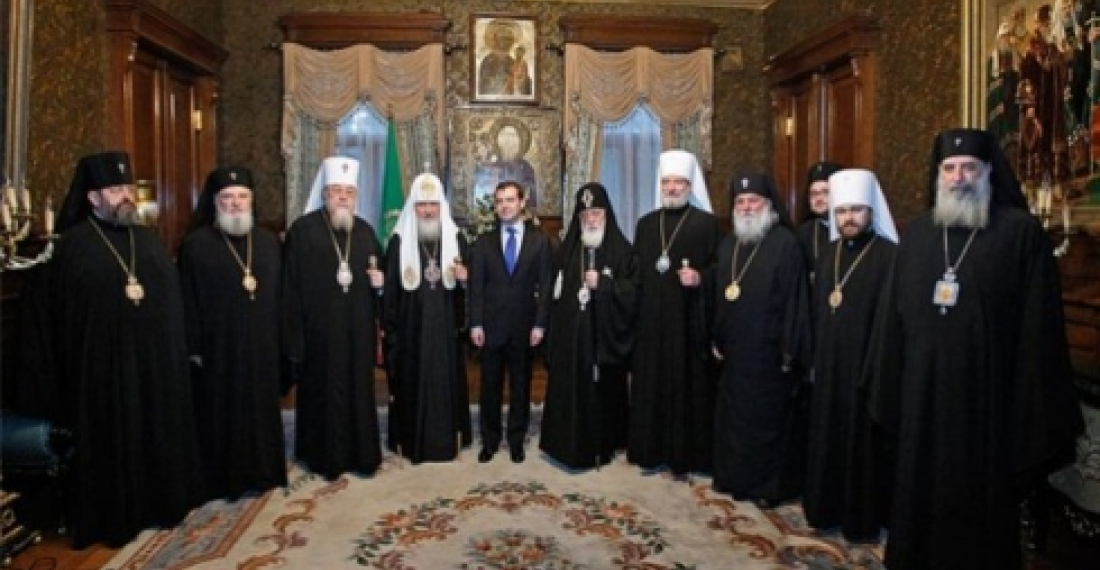Leaders of Orthodox Churches from around the world congregated in the Kremlin earlier this week to congratulate Russian Patrairch Kirill I on the ocassion of his birthday. They were joined by the Russian president Dimitri Medvedev. The presence in the event of the much respected Georgian Patriarch, Illya II gave the meeting a special significance.
Relations between the leadership of the Russian Orthodox Church and the Georgian Orthodox Church have remained strong despite the difficulties in the relations between the two countries in recent years. Significantly the Georgian Church still looks at the Moscow Patriarchate as the senior amongst equals in the Orthodox hierarchy, whilst the Russian Orthodox Church in turn recognises Abkhazia as part of the See of the Georgian Patriarchate. The two Churches have promoted dialogue between citizens, regardless of the problems between governments.
Since taking over the leadership of the Russia Orthodox Church Patriarch Kirill has also promoted dialogue between religious leaders in Armenia and Azerbaijan. The Holy See of the Armenian Apostolic Church announced yesterday that a meeting of religious leaders of the CIS will take place in Yerevan soon and that the Head of the Board of Caucasus Muslims Sheikh ul-Islam Allahshukur Pashazade and Patriarch of All Georgia Ilia II are also expected to attend.
Religious leaders in the Soviet Union and its successors states have learnt how to operate around complicated, sometimes dangerous, political environments. In the present circumstances too they are carving a space for themselves regardless of the current problems between various post Soviet countries, but they also know that they need to move slowly and tread carefully.
source: commonspace.eu
photo: President Medvedev with Russian Orthodox Patriarch kirill I and Georgian Patriarch Ilya II, with other Heads of Orthodox Churches in the Kremlin during a recent celebration of the 65th Birthday of Kirill I (picture courtesy of the Russian Orthodox Church)







